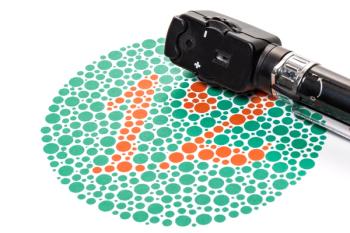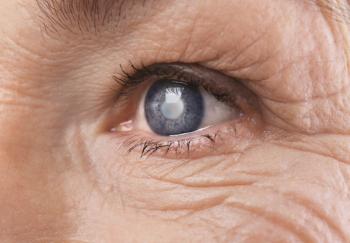
Gene Therapy for Inherited Macular Degeneration Begins Pivotal Trial
In early research, OCU410ST, a gene therapy for Stargardt disease, demonstrated slowed lesion growth by 48% at the 12-month follow-up in evaluable treated eyes.
A patient with Stargardt disease, an inherited macular degeneration, is the first patient dosed with the therapy in a pivotal phase 2/3 trial. OCU410ST, which is being developed by Ocugen, is a possible treatment of ABCA4-associated retinopathies, including Stargardt disease.
Stargardt disease is a genetic eye disorder that causes retinal degeneration and vision loss in children and young adults. It is the most common form of inherited macular degeneration, affecting the macula, or the central part of the eye. The disease causes decreased central vision due to loss of photoreceptors in the macula. About 30,000 people in the United States are
OCU410ST uses an AAV delivery platform for the retinal delivery of the RORA (RAR-Related Orphan Receptor A) gene. The
The phase 2/3 clinical trial for OCU410ST will enroll 51 patients diagnosed with Stargardt disease. Of these, 34 will receive a one-time subretinal injection of OCU410ST in the eye with poorer visual acuity, while 17 will be assigned to an untreated control group. The primary objective of the trial is to evaluate the reduction in size of lesions on the eye where there is tissue degeneration. Key secondary endpoints include improvements in best corrected visual acuity (BCVA) and low luminance visual acuity (LLVA), compared with controls.
The trial is using an adaptive design and includes a masked interim analysis at 8 months on 24 subjects. This, according to Ocugen, enables researchers to evaluate early signals of efficacy and safety while optimizing study conduct. “This ensures we generate robust and meaningful data to support our regulatory submissions for approvals,” Huma Qamar, M.D., chief medical officer of Ocugen, said in a
Data from the one-year follow-up will be used to support a biologics license application (BLA), which is expected in 2027, according to executives from Ocugen. The FDA has granted a Rare Pediatric Disease Designation for OCU410ST.
“For decades, patients have faced the progressive loss of central vision with no approved treatment options. The encouraging phase 1 results give us confidence that OCU410ST could meaningfully slow disease progression and help preserve vision. This trial brings us closer to the possibility of a one-time gene therapy that could transform patients’ quality of life for years to come,” Victor H. Gonzalez, M.D., principal investigator and retinal surgeon at Valley Retina Institute, McAllen, Texas, said in a
Data from the phase 1 GARDian trial for OCU410ST demonstrated a favorable safety and tolerability profile with no serious adverse events related to the therapy. The gene therapy demonstrated slowed lesion growth by 48% at the 12-month follow-up in evaluable treated eyes when compared with untreated eyes. There were no serious adverse events related to the gene therapy in the phase 1 trial.
OCU410 is also in a phase 1/2 trial to treat dry age-related macular degeneration, according to Ocugen’s
Newsletter
Get the latest industry news, event updates, and more from Managed healthcare Executive.























